 Each time I reread this as a child I was moved by its melancholy beauty, its intensity and strangeness. I recognised it as something special. By coincidence, when I was staying in Pau in France last summer I stayed in the room once tenanted by the author.
Each time I reread this as a child I was moved by its melancholy beauty, its intensity and strangeness. I recognised it as something special. By coincidence, when I was staying in Pau in France last summer I stayed in the room once tenanted by the author.
 1
1
 This was a layered, vivid and eerie story set mostly in the surprising setting of wartime Finland. Not a setting I know much about (though I feel I know more now) but it felt convincingly well-researched and well realised.
This was a layered, vivid and eerie story set mostly in the surprising setting of wartime Finland. Not a setting I know much about (though I feel I know more now) but it felt convincingly well-researched and well realised. Joseph, an American war-correspondent reports on the volatile situation in Finland in which the Nazis are assisting the Finns in fighting off the threat from the Soviet Union. Of partially Jewish ancestry and left-wing sympathies, Joseph is distinctly uneasy about this alliance of unequals.
In the midst of danger, Joseph is silently observed by his Fetch - also known as a doppelganger, a Fetch is a folkloric being who appears to an individual at the time of their death, bearing their own image. Joseph's Fetch however, is tormented by tender feelings for the man he exists to make an end of.
Perhaps I was a little unsatisfied by the ending; it lacked something of the moody energy and style of the rest of the story.
I very much enjoyed reading this!
 A pleasing little tale on many levels. A vignette introducing us to the unusual relationship between a blind young nobleman and his tutor. The erotic energy between the two of them is palpable and intense, while a D/s dynamic in which the s is guided firmly and lovingly towards being stronger and more independent was refreshing to read about.
A pleasing little tale on many levels. A vignette introducing us to the unusual relationship between a blind young nobleman and his tutor. The erotic energy between the two of them is palpable and intense, while a D/s dynamic in which the s is guided firmly and lovingly towards being stronger and more independent was refreshing to read about.
The Politics of Immorality in Ancient Rome
 In this book, Catherine Edwards surveys Roman elite discourse around various manifestations of "immorality" including the theatre, "effeminacy", luxurious housing, gluttony and expenditure. Her aim is to explore what the moralists' focus on particular vices reveals about the anxieties of the Roman elite in justifying and maintaining their status. The point is made, for example, that constantly accusing other politicians of "effeminacy" as well as serving as useful invective against that individual, also serves to reinforce the inevitability of male dominance in public life by fixing the association between women and laziness, weakness, and depravity.
In this book, Catherine Edwards surveys Roman elite discourse around various manifestations of "immorality" including the theatre, "effeminacy", luxurious housing, gluttony and expenditure. Her aim is to explore what the moralists' focus on particular vices reveals about the anxieties of the Roman elite in justifying and maintaining their status. The point is made, for example, that constantly accusing other politicians of "effeminacy" as well as serving as useful invective against that individual, also serves to reinforce the inevitability of male dominance in public life by fixing the association between women and laziness, weakness, and depravity. Stigmatising the actor as depraved, effeminate and outcast (actors were subject to reduced civic and political rights along with prostitutes and gladiators) had the function of undermining the subversive potential of a voice that like that of the elite statesman, had the ear of thousands.
In the case of conspicuous consumption and luxurious dining, it is pointed out that Roman moralists trod a thin line between condemning what they perceived as excessive self-indulgence (the mark of a slave or a woman) and acknowledging that the social status of the elite actually depended to some extent on a display of magnificence and hospitality.
A readable and interesting book; my only criticism is that it seemed to be made up of a series of valid observations without their being too much sense of an over-arching argument or conclusion being established.
 Billy Harrow is a curator at the Darwin Centre in London. On a day like any other, he prepares to lead a tour through the exhibition rooms only to discover that the prize exhibit - a gigantic squid preserved in a tank - has somehow been stolen overnight, tank and all. From then on, Billy's hitherto quiet life gets much stranger and a lot more dangerous as he is plunged into a world of apocalyptic squid cultists, Star Trek fanatics, Londonmancers, psychic policewomen, Chaos Nazis and many other curious entities, benign and less so including the deeply unpleasant and mysterious Goss and Subby, a pair of gents who couldn't help reminding me of the almost equally sinister duo from Gaiman's Neverwhere.
Billy Harrow is a curator at the Darwin Centre in London. On a day like any other, he prepares to lead a tour through the exhibition rooms only to discover that the prize exhibit - a gigantic squid preserved in a tank - has somehow been stolen overnight, tank and all. From then on, Billy's hitherto quiet life gets much stranger and a lot more dangerous as he is plunged into a world of apocalyptic squid cultists, Star Trek fanatics, Londonmancers, psychic policewomen, Chaos Nazis and many other curious entities, benign and less so including the deeply unpleasant and mysterious Goss and Subby, a pair of gents who couldn't help reminding me of the almost equally sinister duo from Gaiman's Neverwhere.The dark and magical underbelly of London turned up by this tale was fascinating and absorbing - urban fantasy at its artistic best. I enjoyed reading this book even if there were bits towards the middle where the plot may have felt a little too involved, but it soon picked up again to a satisfying if unexpected conclusion.
 This book did not really deliver what the title promised, but, to be fair, it is hard to know how the promise could have been kept. We know very little about the two wives of Cicero, Terentia and Pulilia or his daughter Tullia, but because of Cicero's vast surviving correspondence, we have details about their lives that are not recoverable from other women of the period. There was next to nothing that could be said about Publila, the teenage bride that Cicero embarrassingly married when he was about 60, so her inclusion in the title is particularly optimistic. With the other two women, there are lots of 'probablys', 'perhaps' and even 'we hope'. I'm not sure there is much here that an imaginative reader could not have extrapolated for themselves from a biography of Cicero, e.g. no doubt Cicero being sent into exile was a very stressful time for his wife and daughter. The book could have been brought further to life, perhaps, with more about Pomponia, Cicero's difficult sister-in-law of whom the author mentions more than she tells. Perhaps a more general book on women in the Late Republic, using these women as primary exempla would have been more interesting and informative rather than a book that wasn't a proper biography of Cicero but told us an awful lot more about him than about his family.
This book did not really deliver what the title promised, but, to be fair, it is hard to know how the promise could have been kept. We know very little about the two wives of Cicero, Terentia and Pulilia or his daughter Tullia, but because of Cicero's vast surviving correspondence, we have details about their lives that are not recoverable from other women of the period. There was next to nothing that could be said about Publila, the teenage bride that Cicero embarrassingly married when he was about 60, so her inclusion in the title is particularly optimistic. With the other two women, there are lots of 'probablys', 'perhaps' and even 'we hope'. I'm not sure there is much here that an imaginative reader could not have extrapolated for themselves from a biography of Cicero, e.g. no doubt Cicero being sent into exile was a very stressful time for his wife and daughter. The book could have been brought further to life, perhaps, with more about Pomponia, Cicero's difficult sister-in-law of whom the author mentions more than she tells. Perhaps a more general book on women in the Late Republic, using these women as primary exempla would have been more interesting and informative rather than a book that wasn't a proper biography of Cicero but told us an awful lot more about him than about his family.
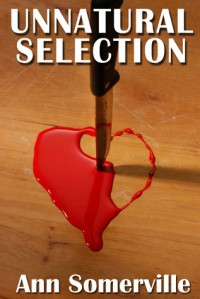 I enjoyed this book. The premise, that a cure has been discovered for serious illnesses that leaves the patient with vampiric characteristics as a side effect was intriguing.
I enjoyed this book. The premise, that a cure has been discovered for serious illnesses that leaves the patient with vampiric characteristics as a side effect was intriguing.I also liked the main character, prickly Nick Guthrie a gay police officer and 'Vee' who has some issues around forming personal relationships. The intricate dance that is the development of his relationship with Dr Anton Marber was, for me, the main pleasure of the story.
The main reason for the comparatively low rating is that the actual crime story never seemed very real or plausible to me. We didn't get to know the victims, so the murders had little emotional impact, and I was only semi-convinced when the identity of the perpetrator was revealed. I might have found it more plausible if more information and background detail had been leaked throughout the narrative, but it felt rather as though the reader was being asked to take quite a bit on trust, just as we were told who the killer was.
Part of the problem, I suspect, is that this novella was more strongly focused on the detective's personal relationship, so that the crime element took a back seat. There wasn't enough space for a convincing romance and crime drama combined.
 Wonderfully readable and vivid overview of the personalities and events of the tumultuous last decades of the Roman Republic.
Wonderfully readable and vivid overview of the personalities and events of the tumultuous last decades of the Roman Republic.
The Male Cross-dresser Support Group
 Bizarre and picaresque story of a hapless woman's odyssey with a small boy called Abdhul whom she adopted in a somewhat unorthodox manner. Along the way there are encounters with severed heads and affenpinscher puppies. Shrewd social comedy with a dose of the surreal and the absurd.
Bizarre and picaresque story of a hapless woman's odyssey with a small boy called Abdhul whom she adopted in a somewhat unorthodox manner. Along the way there are encounters with severed heads and affenpinscher puppies. Shrewd social comedy with a dose of the surreal and the absurd.
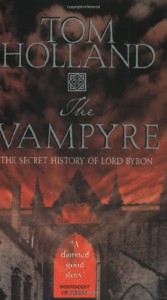 The figure of the brooding, Byronic hero and that of the vampire found their places in English literature at around the same time, both as part of the Romantic movement of the late 18th-early 19th centuries. One of the first vampire stories written in English was in fact composed by Dr. Polidori, the physician of Lord Byron himself.
The figure of the brooding, Byronic hero and that of the vampire found their places in English literature at around the same time, both as part of the Romantic movement of the late 18th-early 19th centuries. One of the first vampire stories written in English was in fact composed by Dr. Polidori, the physician of Lord Byron himself. In this novel, the two figures are blended, as Lord Byron, poet, lover, scandal-driven exile and freedom fighter is further cursed with an immortality, stained with vampiric thirst.
The novel is suffused with the dark, rich elements of the gothic literature of the period - brooding castles, tormented, driven hero, exotic travel,tragic heroines, twisted lusts and, of course, lots of gore.
A particularly piquant cruelty is leant to Byron's situation in that he is not only the sensitive, anguished type of vampire of more recent decades, there is also that in his nature harking back to the more brutish, deadly revenant of folklore.
An entertaining, intelligent take on both the vampire and the Byron mythos.
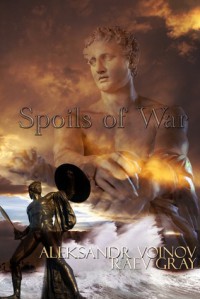 Short story following the adventures of Achilleus after his death, when Ares God of War takes a special interest in the greatest warrior of them all. The character of Achilleus is well-realised and obviously draws from his portrayal in Homer. Ares is also convincing, but as such, I did not find him attractive. I would have liked Patroklos to have featured more in this story but that is perhaps my sentimentality. Some nice writing and a quietly touching ending.
Short story following the adventures of Achilleus after his death, when Ares God of War takes a special interest in the greatest warrior of them all. The character of Achilleus is well-realised and obviously draws from his portrayal in Homer. Ares is also convincing, but as such, I did not find him attractive. I would have liked Patroklos to have featured more in this story but that is perhaps my sentimentality. Some nice writing and a quietly touching ending.
The God We Never Knew
 I read this,hoping for a more in-depth discussion of panentheism, but this is a nice, readable book. It might be more of a starting point for exploration as it doesn't cover ideas in any great detail but gives a very basic introduction to liberal Protestant theology.
I read this,hoping for a more in-depth discussion of panentheism, but this is a nice, readable book. It might be more of a starting point for exploration as it doesn't cover ideas in any great detail but gives a very basic introduction to liberal Protestant theology.
 I admire Helen Dunmore's writing, having previously been very impressed by The Siege, so I was excited, when I discovered she'd written a novel about Catullus. I must say I was rather disappointed however, in particular by the portrayal of Clodia, Catullus' 'Lesbia'. The woman who dimly emerges seems to be constructed from misogynist tradition to the point that she is scarcely a recognisable or rational human being at all. Dunmore seems to have swallowed whole what Catullus and Cicero had to say about her, even removing her strength, wit and political sway.
I admire Helen Dunmore's writing, having previously been very impressed by The Siege, so I was excited, when I discovered she'd written a novel about Catullus. I must say I was rather disappointed however, in particular by the portrayal of Clodia, Catullus' 'Lesbia'. The woman who dimly emerges seems to be constructed from misogynist tradition to the point that she is scarcely a recognisable or rational human being at all. Dunmore seems to have swallowed whole what Catullus and Cicero had to say about her, even removing her strength, wit and political sway. This Clodia has a crazily obssessional, possibly unnatural relationship with her pet sparrow, she is a poet but admits herself, she is not much good, that she is better suited as an ornament. She probably had some part in her husband's death, for an unbelievably stupid reason. For all his complaints about her alleged infidelities, the poet Catullus claims to have loved Lesbia as a friend, appreciated her wit - it is hard to see why he would have loved this, not only wicked, but weak and seemingly witless woman. The long episode of the visit to the poisoner Gorgo has little point to it - it leads nowhere in terms of plot. I would have hoped for a more challengeing reading of tradition, it would have made for a more interesting book.
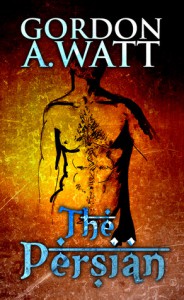 The story of Vaz, a young Iranian art student in London, who goes on a night out with his new friends and inexplicably wakes up next to a dead body.
The story of Vaz, a young Iranian art student in London, who goes on a night out with his new friends and inexplicably wakes up next to a dead body.This was an enjoyable read; there is generally a good-hearted, somehow innocent feel throughout most of the novel,which is written in a chatty, colloquial style, with a strong emphasis on the redemptive power of love - this makes it the more shocking when things turn very dark indeed.
The setting in Walthamstow and the group of people Vaz becomes part of are vividly realised. The author has a good sense of place and description and clearly knows and loves the great Metropolis.
Crime is not my favourite genre, but the workings of the plot did somewhat stretch my credulity; however, I very often find that to be the case.
The novel could do with re-editing: there are lots of minor errors, especially with punctuation, the abuse of apostrophes being really quite painful. There are also sentences which were obviously hastily written and leave the meaning unclear.
This was a free ebook and an enjoyable entertaining novel, so really, I'm not complaining.
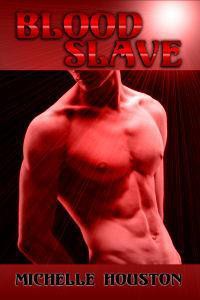 The premise was interesting and the beginning promising but then the stories just didn't really get developed but instead hurried rather literally to their climax.
The premise was interesting and the beginning promising but then the stories just didn't really get developed but instead hurried rather literally to their climax.
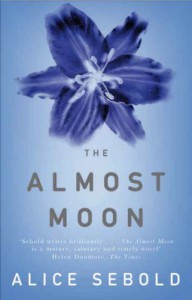 I was given this book as a Christmas present (by my mother of all wonderful ironies) and started reading it quite innocent of subject. This is not a happy book. I should note that I personally found it quite disturbing, which will obviously slant my reading of it.
I was given this book as a Christmas present (by my mother of all wonderful ironies) and started reading it quite innocent of subject. This is not a happy book. I should note that I personally found it quite disturbing, which will obviously slant my reading of it. From the outset, the novel plunges you straight into horror, at its most mundane and dreary. It then opens out into all the misery of disfunctional family relations, the effects of severe mental illness on a family and the grim hardship of the role of family carer.
The heroine, Helen Knightly is not a sympathetic figure. On one level she reveals herself as hopelessly insane and twisted yet, on another level seems outwardly functional. After her shocking action at the beginning of the book and the wierd and somehow even more disturbing actions that followed it, I was perhaps expecting some shocking revelation of abuse and cruelty that would explain, if not justify. This did not transpire - Helen's mother Clair was a weak, sick and not very nice woman, an inadequate mother but she was not a monster. I found the level of acceptance offered by those who learned of Helen's action a little unbelievable. The fact that Helen was even ready to let another person take the blame for her actions makes her all the more unlikable.
The novel does offer some hope of redemption, in the shape of the love Helen shows her own children, her refusal to pass on the legacy of weakness and her mother's ultimate betrayal of failing to protect her child, but whether that shaft of light is bright enough to penetrate the darkness is another question.



